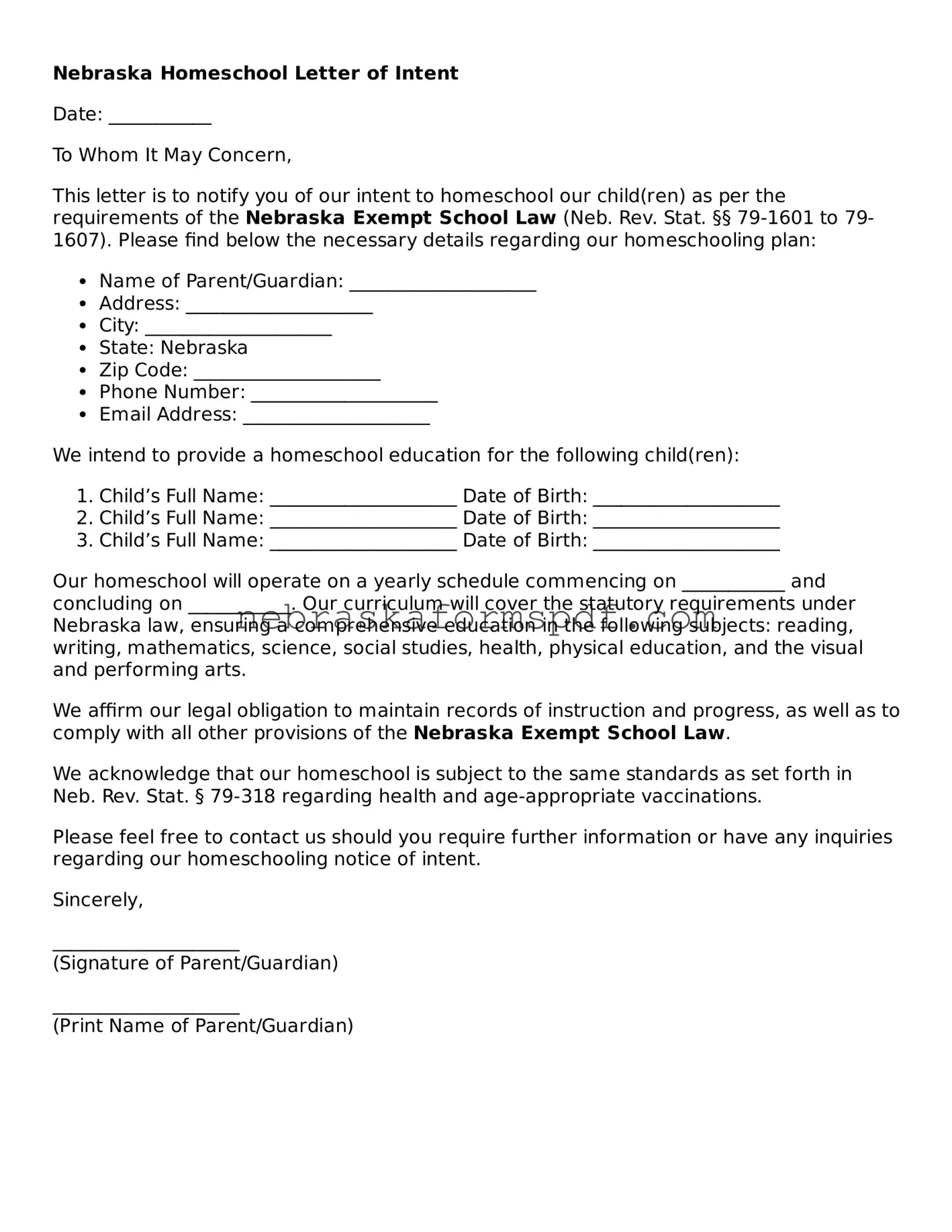Fillable Nebraska Homeschool Letter of Intent Template
The Nebraska Homeschool Letter of Intent form is a document that parents or guardians must submit to their local school district to officially notify their intention to homeschool a child. This form kicks off the process of homeschooling, ensuring that the family compliates with state education laws. It's a crucial first step for anyone considering homeschooling in Nebraska.
Open Editor Here

Fillable Nebraska Homeschool Letter of Intent Template
Open Editor Here

Open Editor Here
or
Click for PDF Form
Don’t exit with an incomplete form
Finish Homeschool Letter of Intent online using a quick, guided process.